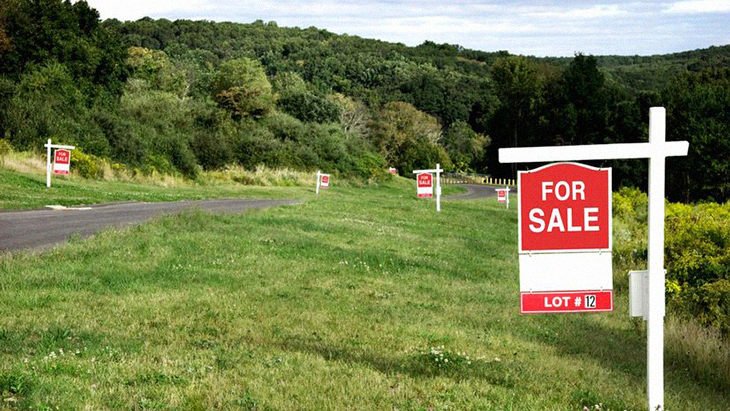
Whether it’s for building a home, recreation, or other investment, buying land is a dream come true for many would-be investors. That is if you can escape the hurdles that confront first-time buyers. Investing in land is a long-term undertaking, and you can use it, hold on to it or sell it when the market value appreciates.
While it’s exciting to buy land for the first time, there are lots you need to know about the property as well as the buying process. You may be an experienced real estate investor, but there are different issues, best practices, and rules for land.
However, this can be a fantastic investment that you shouldn’t pass out of ignorance. Here are tips for first-time land buyers to ensure their purchase is a success.
7 Things First-Time Land Buyers Must Do
Find a Competent Real Estate Agent
That plot of land that’s right for you can be yours if you work with the professionals. A real estate agent whose focus is on selling and buying acreage and lots will lead you to a suitable property with fair market values. This local expert will keep an eye out for land with no issues while offering advice on uses according to zoning regulations.
There Are No Conventional Land Buying Mortgages
Due to the inability to resell land loans on the secondary mortgage market, banks and finance providers shy away from lending to land buyers. When that happens, a bank can’t recoup on the interest, which means they stand to lose if you default on the loan.
To reduce such risk, lenders ask for a significant down payment to secure mortgages, almost 50% of the asking price in some instances. Others flat out refuse to lend money for buying land, mainly if there are no structures or any development on the property.
When you need to finance land purchase, a great alternative for bank loans, is negotiating a seller financing deal. Your agent can set you up with sellers who’ll let you pay off the more significant chunk of the purchase price in installments. Seller financing has multiple advantages, which makes this option a perfect deal for some land buyers. It is considered to be a great option for those who struggle with low credit score. Moreover, in comparison to traditional loans, seller financing is more cost efficient, since they require lower down payment and closing costs.
Investigate the Land You Are Buying For Property Restrictions
Before making an offer, endeavor to find out what conditions are attached to a piece of land. These often come as ordinances or covenants, such as minimum acreage ownership in some rural areas. Before you can get a permit for building on the property, some local restrictions need you to own between five and 40 acres of land.
Zoning restrictions and easements in neighborhood development areas can dictate where or not you will put up structures. House building, size, manner of siding, or steepness of roofs are other examples of restrictive ordinances. You can check with the register of deeds in that county for any covenant snags.
Land Rezoning Is next To Impossible after Purchase
If there are zoning issues on the land you are looking to buy, don’t ignore them, thinking you can sort it out later. There are no guarantees that land can be rezoned, such as from industrial to residential or agricultural land after you’ve bought it. If you make an offer on land that’s not zoned to your desired purpose, ensure that closing the sale is contingent on having zoning approval.
If the seller requests to rezone and the local authority turns it down, you won’t get stuck with land you can’t use.
Test Your Land for Environmental Safety
Before platting and subdividing development properties, environmental tests are done as part of conforming to regulations. It’s a different piece of the pie when you are buying rural land as you’ll have to carry out these tests for land lying vacant. There could be polluted groundwater or soil as the land could once have been used as a chemical stockyard or gas depot.
While such issues will prove health hazards if you occupy that land, you can do little with revenue generation. You will have difficulties getting building or agricultural permits, and you’ll not be able to resell the contaminated land at market value.
Do an Intensive Scope of Your Neighbors
When you’re targeting a parcel of land in an area, find out about the neighborhood. Besides essential utilities like schools, shopping malls, and parks, see any future commercial development set to take place nearby. A feedlot of a landfill near your country farm can be a potential drawback, so is a neighbor applying for zoning variances for installing a livestock operation or wind firm.
County commission records can unearth planned developments that you may find difficult or disagreeable living next to.
Find Out About the Natural Hazards Affecting the Land
A piece of land can be looking majestic in one season and wholly submerged underwater the next. Your land could be in a floodplain, with floods that occur every 10 or 20 years. If you try constructing such land, a building permit won’t be forthcoming, or you’ll be forced to buy flood insurance.
Depending on the value of structures on the property and the level of flooding risk, you will buy policies that cost between $600 and $3,000 annually. Other hazards that will restrict land development and affect its value include; proximity to earthquake fault lines, increased wildfire propensity, unstable or erodible soil.
Conclusion
As a first-time land buyer, don’t be in a rush to close or recoup on your investment. Unlike developed real estate, the land market moves at a much slower pace. Take your time and make the decisions that work for your finances, plans, and future. Remember to work with a local buyer’s agent to take advantage of their land buying knowledge and local zoning restrictions.


